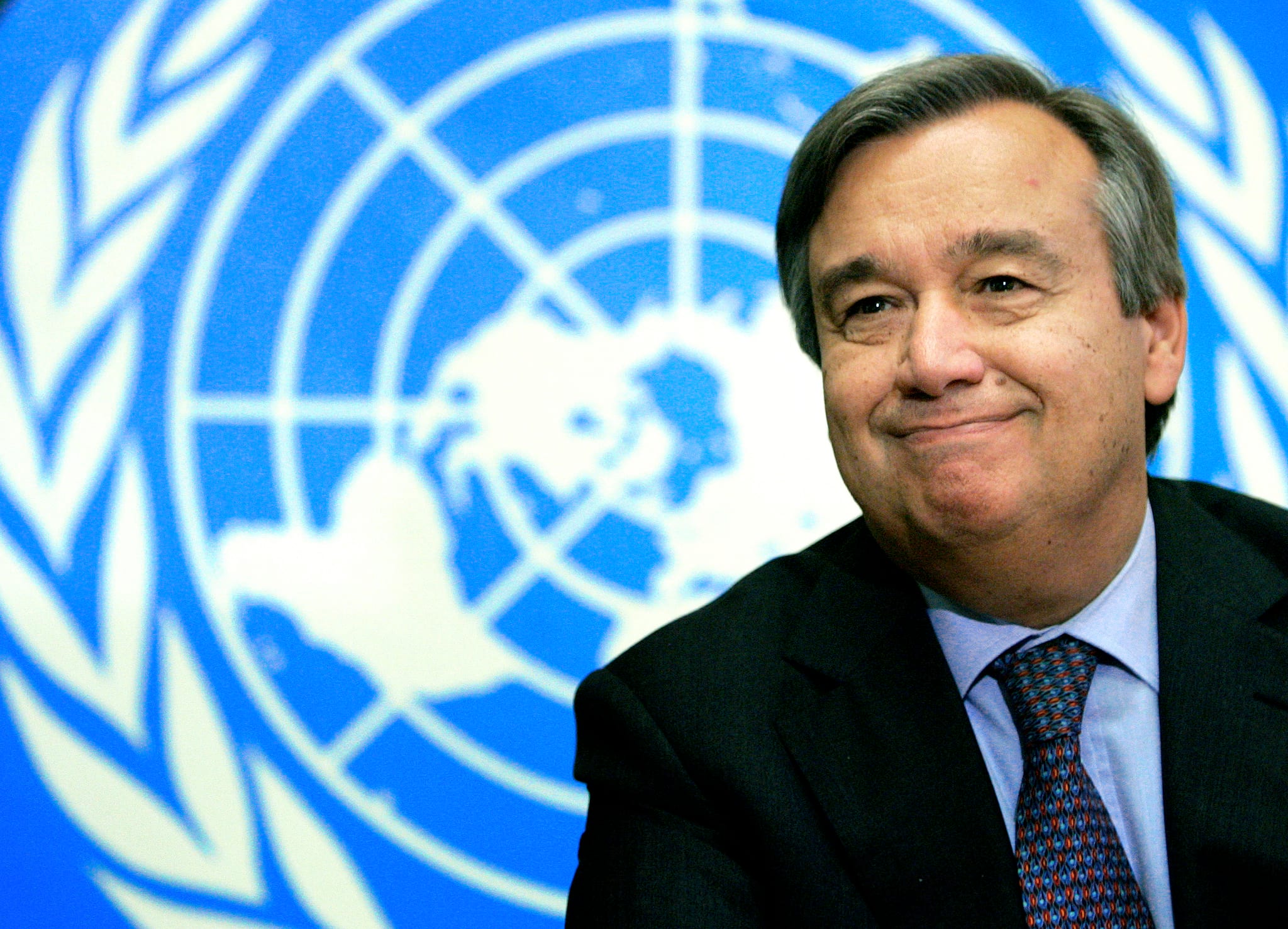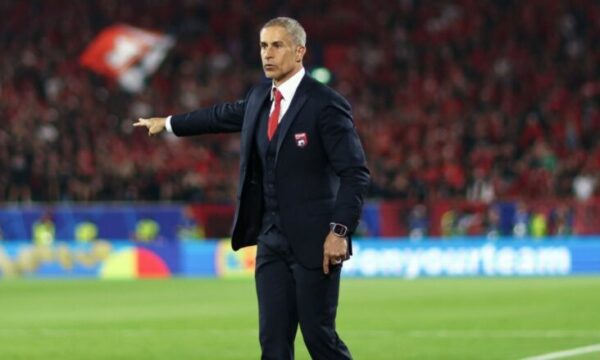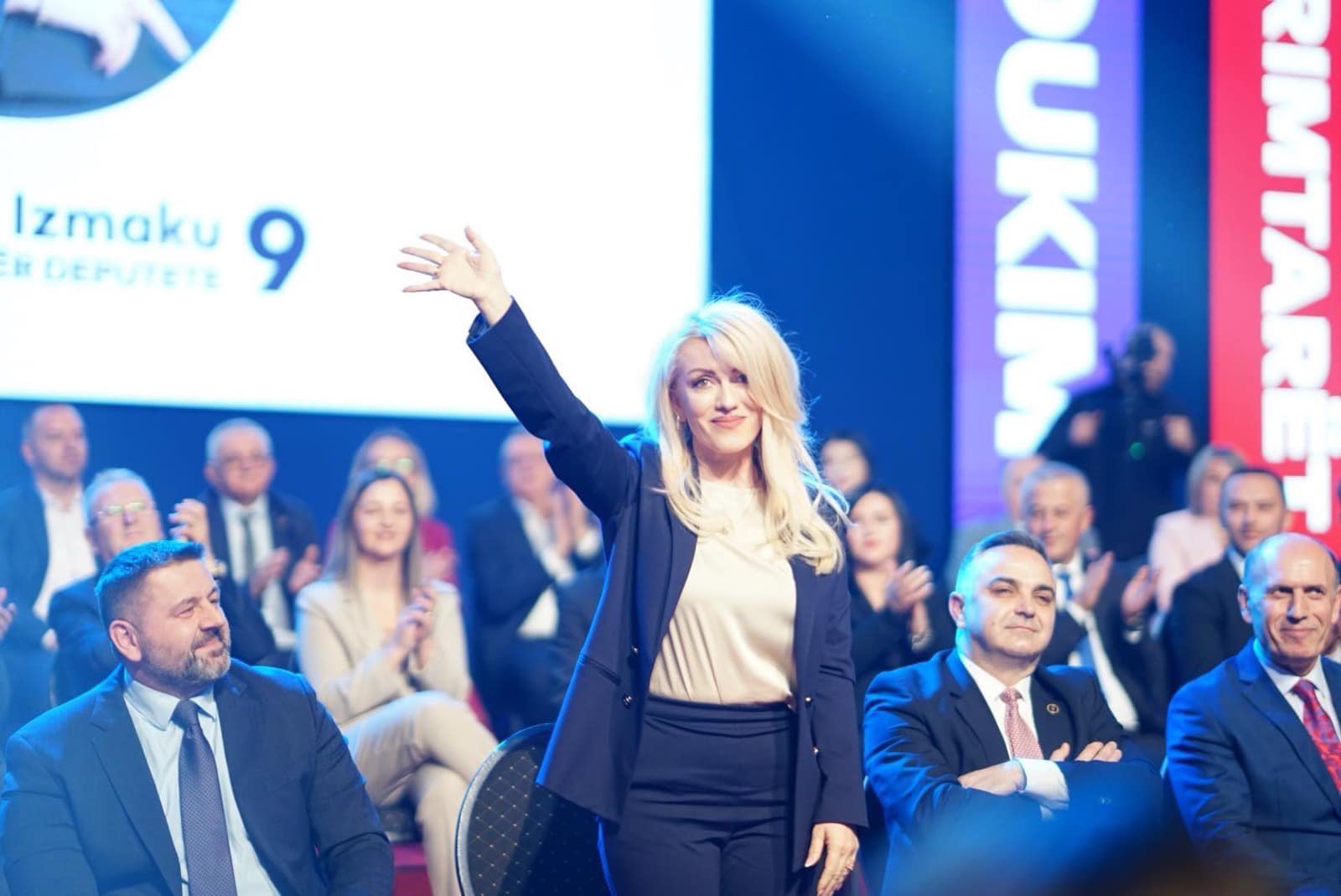 Geneva, UN/3 jan 2017 (By Nefail Maliqi) -“On my first day as Secretary-General of the United Nations, one question weighs heavily on my heart, Let us make 2017 a year for peace..”- UN Secretary-General António Guterres, report Press UN, transmete the Press Agency “Presheva Jonë”
Geneva, UN/3 jan 2017 (By Nefail Maliqi) -“On my first day as Secretary-General of the United Nations, one question weighs heavily on my heart, Let us make 2017 a year for peace..”- UN Secretary-General António Guterres, report Press UN, transmete the Press Agency “Presheva Jonë”
How can we help the millions of people caught up in conflict, suffering massively in wars with no end in sight?
Civilians are pounded with deadly force. Women, children and men are killed and injured, forced from their homes, dispossessed and destitute. Even hospitals and aid convoys are targeted.
No one wins these wars; everyone loses. Trillions of dollars are spent destroying societies and economies, fuelling cycles of mistrust and fear that can last for generations. Whole regions are destabilised and the new threat of global terrorism affects us all.
On this New Year’s Day, I ask all of you to join me in making one shared New Year’s resolution:
UN Secretary-General’s remarks to staff on his first day at UN Headquarters
Let us make 2017 a year in which we all – citizens, governments, leaders – strive to overcome our differences.
From solidarity and compassion in our daily lives, to dialogue and respect across political divides…
From ceasefires on the battlefield, to compromise at the negotiating table to reach political solutions…
Peace must be our goal and our guide.
All that we strive for as a human family – dignity and hope, progress and prosperity – depends on peace.
But peace depends on us.
I appeal to you all to join me in committing to peace, today and every day.
Let us make 2017 a year for peace.
Thank you.
Dear colleagues, this is indeed a very emotional moment for me. I am humbled and happy to be with all of you here today. Ten years ago, I had the chance to start being a staff member of the UN, and I had the privilege to serve not only the UN, but as High Commissioner for Refugees, to serve the most vulnerable of the vulnerable people. And in that work, I have learned that if the UN is the main pillar of multilateralism, UN staff is the main pillar of the UN. And I could witness the courage, the determination, the generosity and the wisdom and competence of my UNHCR colleagues all over the world. And so, as you can imagine, after one year of sabbatical period, it is for me an enormous happiness, an enormous privilege to again call you my colleagues, and I’m very proud to be your colleague.
But having said that, I think we should have no illusions. We are facing very challenging times. On one hand, we see everywhere in the world conflicts that multiply, that are interlinked, that also have triggered this new phenomenon of global terrorism and you can imagine what it is for me, that I have worked as High Commissioner with the Turkish people, [Turkey] became the largest country receiving refugees in the world; having witnessed the generosity of the Turkish people, to see now the Turkish people being the victims of this terrible terrorist attack of the last few days.
And so, we live in a world in which conflicts multiply and are interlinked with this new phenomenon of global terrorism, conflicts in which international humanitarian law is not respected, situations in which we see massive human rights violations, even refugee law is no longer as respected as it was few years ago — I remember the times when mostly borders would be open and now we see borders closed, now people do not even have the right to be a refugee in many parts of the world.
On the other hand, it is true that we have witnessed enormous economic progress and enormous technological progress; we have less extreme poverty in the world, in general social welfare has improved as an average, but the truth is also that inequalities have grown quite dramatically. Hence, in a world in which everything became global and communication became global, the fact that you are excluded makes it even more unbearable because now people can see how others live, can see the prosperity in other parts of the world, and so exclusion is something that more easily triggers revolt, anger and become a factor of instability.
So when one looks at the global mega-trends of population growth, climate change, and other aspects that are interlinked, we see that we live in a world where problems became global and there is no way they can be solved on a country by country basis. And so this is the moment in which we have to assert the value of multilateralism. This is the moment in which we need to recognize that only global solutions can address global problems and the UN is the cornerstone of that multilateral approach. But having said so, I think it is important to recognize that we cannot take anything for granted. These beliefs that I have expressed are not shared by many people around the world. As we see in many countries a growing divide between public opinions and governments or political establishments, we also see, in relation to international organizations like the UN, a lot of resistance in many parts of the world and a lot of scepticism about what role the UN can play. And so I think it is important for us to be proud of what we do as the UN, to recognise our achievements: many, many people that we have rescued; many, many people that have suffered much less because of the UN existing; many people that saw their living conditions improve through international cooperation in different parts of the world, But we also need to be able to recognize our shortcomings, to recognize our failures, to recognize situations in which we are not able to deliver as we should for the people we care for.
In UNHCR, it was very easy to define the people we cared for. The people we cared for were basically the refugees and the displaced. Now, the people we care for here – it is everybody. And you need to be able to respond to the anxieties, to the concerns and to the aspirations of everybody around the world. And that’s not easy.
And let’s be honest, we are not yet entirely ready to do it properly. So we need to have a strong engagement to change, to reform and to improve. And that engagement needs to be our engagement, by all of us. It is not an engagement of the Secretary-General or one or other managers of the Organization. It must be our collective engagement, to be able to address the shortcomings that we have. We still fail in relation to prevention of conflicts and conflict resolution. We still have difficulties in bringing together peace and security, sustainable development, and human rights — that are three aspects of the same reality.
We still fail to recognise that there is a unifying factor in everything we do. And that factor is people. “People” is undivided. And when we look at the different areas of action in the UN we need to integrate them, because people integrate them on the receiving end. At the same time we need to make sure that we are able to reform the UN development system as Member States have asked us, and we need to try to get rid of this straightjacket of bureaucracy that makes our lives so difficult in many of the things we do. This requires a lot of effort from ourselves, but this also requires a lot of discussion and dialogue and mutual understanding with Member States and we need to overcome many of the divides that still exist within the Organization.
So, these times will be challenging. But we need to be aware that it is not enough to do the right thing. We need to earn the right to do the right thing, and that is something we need to do all together.
I know that the way this process of election has been developed, has generated a lot of expectations. I think it is useful to say that there are no miracles, and I am sure I am not a miracle-maker. And the only way for us to be able to achieve our goals is to really work together as a team, and to be able to deserve to serve the noble values enshrined in the Charter, that are the values of the UN, that are the values that unite mankind.
And on 9 January, we will have our Town Hall meeting, and there my main objective will be to listen to your concerns, your aspirations, your opinions, your suggestions, more than to come with readymade ideas about the future. I am very interested in engaging with all of you in a meaningful dialogue. Thank you very much to all of you, and Happy New Year!


















